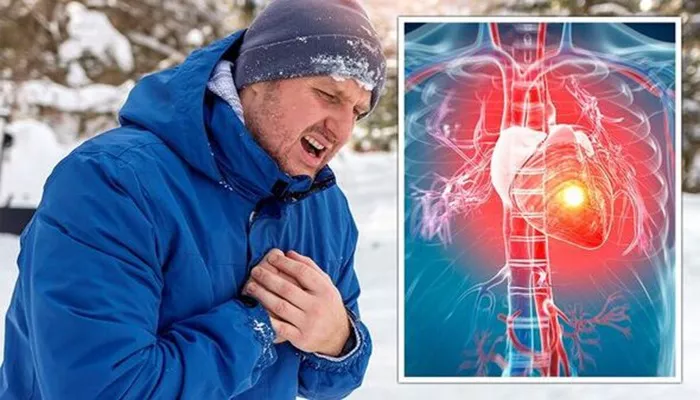Hospital admissions for heart attacks rise significantly after exposure to cold weather, according to new research published in the Journal of the American College of Cardiology (JACC) and presented at the European Society of Cardiology (ESC) Congress 2024. The study highlights the potential dangers associated with cold temperatures and emphasizes the importance of understanding the broader health implications of global climate changes, especially in colder regions.
Dr. Harlan M. Krumholz, Editor-in-Chief of JACC, emphasized the critical connection between cold exposure and heart attack risk, noting that the risk peaks days after the cold weather event. “These findings stress the need for targeted interventions to protect vulnerable groups during and after periods of cold stress,” Krumholz stated.
A heart attack, or myocardial infarction (MI), occurs when blood flow to a section of the heart is blocked, usually by a blood clot. This blockage prevents oxygen from reaching the heart muscle, resulting in damage or death to the affected area.
Previous research has shown that low temperatures pose a greater cardiovascular risk than high temperatures globally.
However, data from colder regions with extreme weather have been limited. This study focused on Sweden, a country known for its harsh winters and frequent cold spells, to assess the impact of short-term cold exposure on heart attack risk.
The study tracked 120,380 individuals from the SWEDEHEART registry, analyzing the relationship between exposure to cold air and the likelihood of heart attack hospital admissions during Sweden’s cold season (October to March) from 2005 to 2019. Cold spells were defined as periods of at least two consecutive days where the average daily temperature was colder than the 10th percentile of temperatures recorded during the study.
The results showed that exposure to lower temperatures was linked to an increased risk of heart attacks, including both NSTEMI (non-ST-segment elevation myocardial infarction) and STEMI (ST-segment elevation myocardial infarction), two to six days after the cold exposure. Similarly, cold spell exposure during the same time frame was associated with a heightened risk of heart attacks.
Interestingly, the study found that heart attack hospitalizations actually decreased during the first day or two of cold exposure. Researchers suggested that this could be due to people staying indoors to avoid the cold or delaying seeking medical help because of disruptions in services. However, these behaviors might contribute to the delayed increase in hospitalizations seen two to six days later.
“This delayed pattern in heart attack risk after cold exposure may reflect the body’s gradual response to the stress of cold weather, aligning with previous research showing delayed cardiovascular effects from cold exposure,” explained study author Ni. “Understanding this lag in risk is crucial for developing preventive measures.”
The study also examined the effects on both first-time and recurrent heart attacks, finding that the difference in risk between the two was not statistically significant.
In an accompanying editorial, Dr. Kai Chen of the Yale School of Public Health and Dr. Khurram Nasir of Houston Methodist highlighted the importance of reconsidering how healthcare professionals address the interaction between environmental factors and cardiovascular health.
“As climate patterns become more unpredictable, our approach to managing cardiovascular health must adapt,” Chen and Nasir wrote. “By addressing the full range of temperature-related risks, we can better prepare our healthcare systems to meet these challenges and build a more resilient future for cardiovascular care.”


